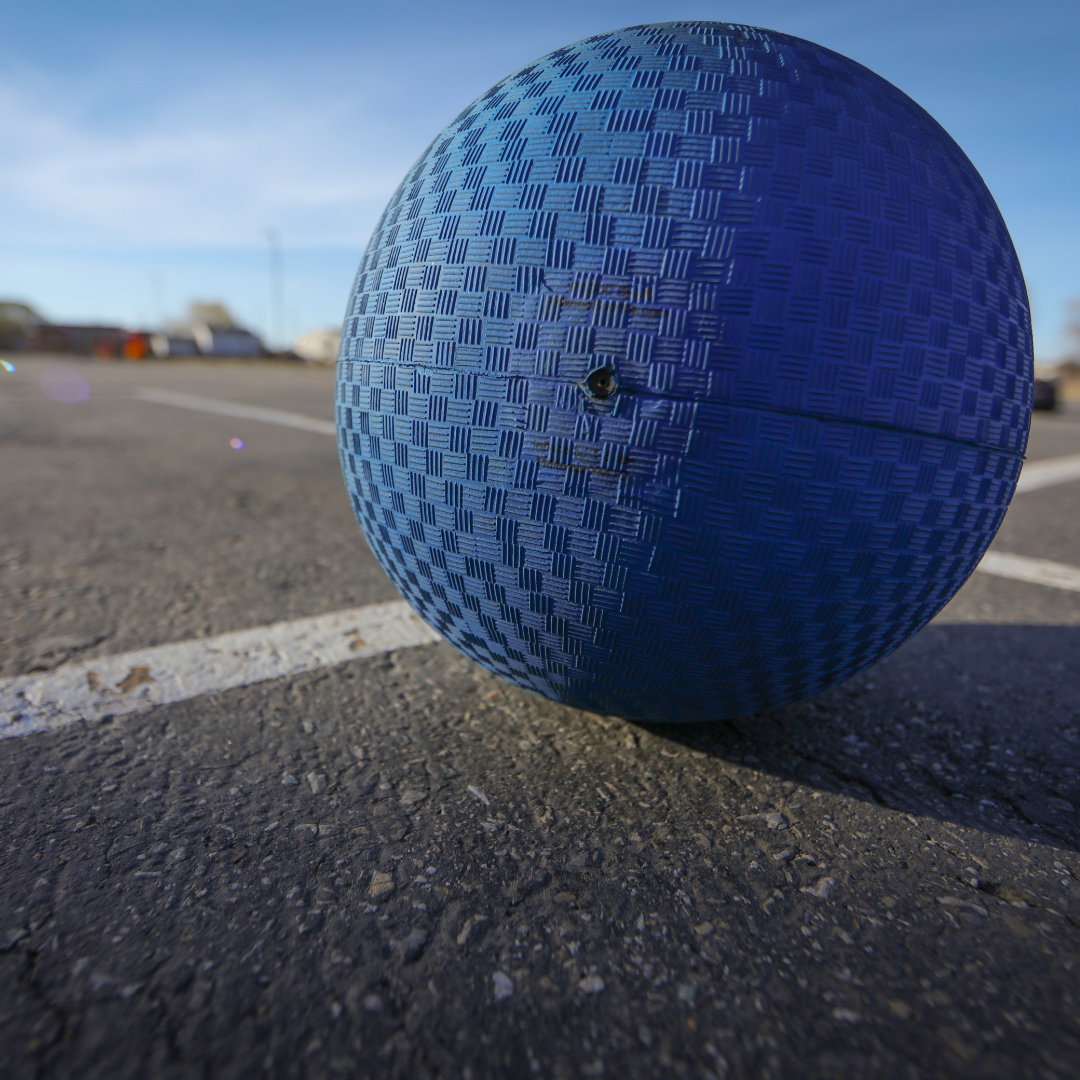In the early days of the pandemic confinement, I ordered a playground ball. While temperatures outside began to warm and my children were stuck learning behind screens for long hours each day, I dug around the mudroom for chalk and waited on the playground ball to arrive. A Four-Square ball, to be exact.
Once the school day was completed, we’d traipse out to the alley behind our property with the chalk, ball, and a yardstick, and the kids would mark off the bounds for a game of Four Square.
Having all attended Catholic schools, we were familiar with the sport—a favorite parking-lot game where fancy playground equipment was unavailable. Combined, we’ve probably amassed hundreds of hours clocked chasing balls in and out of squares, though I hadn’t played the game since the 1980s.
There are no great athletes in our family. We do okay in some sports some of the time, and we’ve all played organized sports — baseball, softball, basketball, flag football, ice hockey, volleyball. From my own experience, I consider time spent on those sports at our township, diocesan, and high school levels as valuable. Participation provides lessons in determination, discipline, winning and losing, teamwork, obedience, and the importance of physical activity for health of mind and body.
My experience in those sports and the lessons learned helped me to recall with clarity the unique joy of sports while watching The House That Rob Built. The rush of a win, the crush of defeat, the camaraderie built — they leave lasting impressions.
The documentary was so well done that even my meager, long-ago experience of those moments brought back feelings of accomplishment, defeat, frustration, pride, and happiness.

Our days spent on our alley Four-Square court weren’t nearly as exhilarating. But they were fun and memorable. At a time when hope seemed hard to come by and as days of confinement slipped to weeks and then months, playing together was simply fun.
There were little lessons about being a good sport and playing fairly. Chasing the ball over the hillside or down either side of the alley was commonplace. And I may have been a bit sore a day or two. But almost a year out from when I ordered that ball, those simple alley games are one of the experiences I’ll always associate with the onset of the pandemic and the ensuing restrictions.
The laughter and the physical activity were much needed. I don’t know the precise physiological effects of sports, but the exertion, the laughter, and the fun created a treasured memory that we’ll long share.
What we do with our bodies matters in innumerable ways, even mundane ones. And when the woes of the world seemed especially oppressive — and they sometimes still seem that way — physical family playtime offered a reprieve. We spent less than $6.00 on that blue, rubber playground ball. It’s one of the best investments we’ve ever made.
This article is part of a special Catholic Mom series on the new Family Theater Productions documentary, The House That Rob Built.
View the trailer:
About the film:
The inspiring story of Rob Selvig, pioneering coach of the University of Montana’s Lady Griz basketball team. In an era when gender discrimination in sports was the norm, Coach Selvig built a "house" of inclusion and empowerment by recruiting female athletes from the ranches, farms and Native reservations of Big Sky Country. For nearly 40 years, these athletes would establish the preeminent women’s basketball program west of the Rockies. (TheHouseThatRobBuiltMovie.com)

Images: TheHouseThatRobBuiltMovie.com/Family Theater Productions, all rights reserved, used with permission